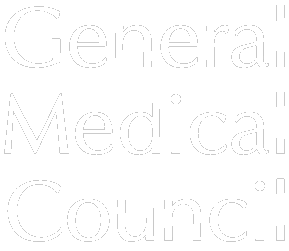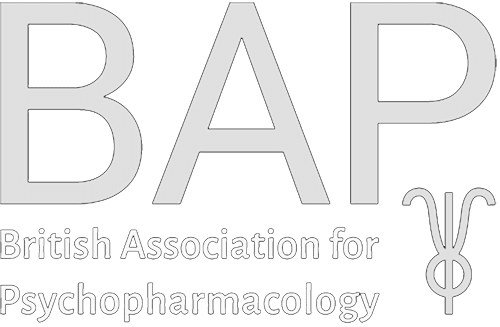Private ADHD Assessments and Treatment in Brighton
Private ADHD clinic in Brighton – ADHD assessments and treatment for adults
About this service
We are a private psychiatric clinic in Brighton, offering specialist ADHD assessments to ensure appropriate diagnosis. We are then able to prescribe ADHD medical treatment supervised by our consultant psychiatrists and refer to our ADHD therapists and coaches. If your difficulties also relate to the aspects of neurodiversity such as autism, we can also complete appropriate assessments.
We pride ourselves in a compassionate, person-centred approach to diagnosis and treatment. Please do not hesitate to get in touch, and our expert staff will be happy to help.



Attention Deficit Hyperactivity Disorder (ADHD) is a complex neurodevelopmental disorder that effects individuals of all ages, and although it is frequently diagnosed in childhood, often the diagnosis is made as an adult. Delayed diagnosis can cause significant difficulties in mental health, and the development of social and work-related problems. A very high percentage of people with ADHD also have or have had coexisting mental health difficulties (approximately 70%) and these conditions usually improve with appropriate treatment for the ADHD.
The prevalence of ADHD is estimated to be around 5-7% in children worldwide, with boys being diagnosed at a higher rate than girls of about 3:1. The different gender rates may be due to ADHD being under recognised in girls and different symptom profiles. ADHD is increasingly recognised in adults, with around 2.5% of adults in the United States being diagnosed with the disorder.
Symptoms of ADHD can manifest in various ways and may present differently in each individual.
Common symptoms of ADHD include:
1. Inattention- Individuals with ADHD may have difficulty sustaining attention and staying focused on tasks, organizing tasks, following through on instructions, and completing tasks. They may be easily distracted and forgetful in daily activities. They may often lose things and have trouble sustaining attention, especially on tasks that require mental effort.
Attention “deficit” is however a misnomer, attention problems in ADHD can be about distractibility, and lack of attention but individuals also describe periods of intense over focus or hyperfocus. Hyperfocus can be beneficial but also can be problematic as the individual lose track of time, sometimes forgetting to eat or go to the toilet and often forgetting other tasks or obligations. This may present as “time blindness”. In relationships, the oscillation between inattention and hyperfocus can be particularly frustrating for the non-ADHD partner. The problem is therefore more related to a deficit of control or dysregulation of attention.
2. Hyperactivity -Hyperactivity in ADHD can present as excessive energy with individuals being constantly on the go. Those with ADHD describe feeling fidgety, restlessness, and have difficulty sitting still for extended periods with a constant need for movement or activity. Individuals may seem “on the go” or act as if driven by a motor, even in situations where it is not appropriate. The hyperactivity may be related to thoughts. Individuals describe constantly busy minds with multiple busy thoughts going on continually. People describe their thoughts as being like a bag of ping-pong balls, a plate of jumbled spaghetti or a computer with hundreds of tabs open. The constant busy mind, however, can be an advantage with creativity. However sometimes people describe being distracted even by their own thoughts and going off on internal tangents. The motor hyperactivity adds to difficulties with staying focused on tasks. Individuals with ADHD may have difficulty engaging in quiet activities.
3. Impulsivity-Impulsivity in ADHD can manifest as acting without thinking, interrupting others, blurting out answers, and difficulty waiting their turn in conversations or activities. Impulsive behaviours may lead to social problems and difficulties in relationships. Individuals may engage in risky behaviours, struggle with impulse control, and find it challenging to inhibit their immediate responses. This can lead to problems with accidents, substance misuse and substance addictions, gambling, overeating and impulsive spending.
People with ADHD often describe feeling very sensitive to rejection and negative comments in social interactions and relationships. This is sometimes known as “rejection sensitive dysphoria”.
Mood dysregulation is increasingly being recognised as part of ADHD but is not currently seen as a core diagnostic feature.
– Predominantly Inattentive Presentation -Characterized by predominantly inattentive symptoms without significant hyperactive-impulsive behaviours.
– Predominantly Hyperactive-Impulsive Presentation-Marked by predominantly hyperactive and impulsive symptoms without significant inattention.
– Combined Presentation. Involves a combination of both inattentive and hyperactive-impulsive symptoms.
ADHD is often associated with various coexisting mental health problems, including anxiety disorders, depression and autism. In childhood, there may also be oppositional defiant disorder and conduct disorder. These comorbid conditions can complicate the presentation of ADHD symptoms and may require additional treatment and intervention. Bipolar disorder can present in a similar way to ADHD and ADHD also can be misdiagnosed as bipolar disorder. However, ADHD and bipolar disorder can coexist as separate but interrelated conditions. Dyslexia and dyspraxia often coexist with ADHD.
A GP referral is usually required to access an ADHD assessment, please let the admin team know if you are having any difficulties obtaining a referral. The initial assessment is a general psychiatric assessment (face to face or via video
Diagnosis of ADHD involves a comprehensive evaluation by a mental healthcare professional, typically a psychiatrist. Our consultant psychiatrists use the same diagnostic processes as are utilised in the NHS and many of our consultants also work in NHS settings. The assessment is a three-step process as described below.
Step 1 The first hour consultation (face to face preferred but remote via video link is available) with a consultant psychiatrist involves a thorough assessment of the individuals’ symptoms, a developmental and medical history and behavioural observations. The medical history will indicate whether other physical investigations (such as an ECG or blood tests) are required before potential prescribing. A screening tool known as the adult ADHD self-report scale (ASRS v 1.1) is often used. This appointment assesses how likely is the ADHD diagnosis and whether there are any other conditions that need stabilising first.
Step 2 If it seems likely that ADHD is a potential diagnosis the next step is for a semi structured diagnostic questionnaire called the Diagnostic Interview for ADHD (DIVA-5) by Brendon Faulknor Therapeutic Nurse Consultant, or another appropriately trained specialist for 50 minutes. The DIVA 5 uses specific criteria outlined in the Diagnostic and Statistical Manual of Mental Disorders (DSM-5) to make a formal diagnosis of ADHD. This is available face to face or via an online video assessment. These results are then fed back to the Consultant. Please note that if you are covered by insurance this DIVA assessment will not be covered by your policy and will need to be paid for by the patient.
Step 3 If the diagnosis is confirmed there is then a follow up with the consultant psychiatrist for up to 30 minutes to discuss the diagnosis and plan treatment.
At Flint Healthcare we strongly believe in continuity of care and the same consultant will be responsible for discussing and prescribing your treatment before it is handed back to the GP with a shared care agreement when stabilised.
For costs see web site under Seeking Help – What are your fees?
Treatment for ADHD typically involves a multi-modal approach that combines medication, behavioural therapy, and lifestyle modifications. Stimulant medications such as methylphenidate or lisdexamfetamine are commonly prescribed to help improve focus, reduce hyperactivity, and manage impulsivity. Methylphenidate is a central nervous system stimulant that is commonly used to treat attention deficit hyperactivity disorder (ADHD) and narcolepsy. The exact mechanism of action of methylphenidate is not fully understood, but it is believed to work by increasing the levels of neurotransmitters in the brain, particularly dopamine and noradrenaline(norepinephrine).
Stimulants inhibits the reuptake of dopamine and norepinephrine by blocking the transporter proteins responsible for transporting these neurotransmitters back into the presynaptic neurons. This leads to an increase in the concentration of dopamine and norepinephrine in the synaptic cleft, which enhances neurotransmission. They also stimulate the release of dopamine.
By increasing the levels of dopamine and norepinephrine in the brain, methylphenidate helps to improve attention, focus, and impulse control in individuals with ADHD.
Non stimulant medication such as atomoxetine can be used, and medication can also be used to treat coexisting mental health conditions such as anxiety disorders and depression.
If medical treatment is pursued there will need to be further appointments with the consultant to establish the therapeutic dose which must then be maintained for 4 to 12 weeks depending on the medication before prescribing is handed over to the GP via a shared care agreement (usually three or four appointments up to 30 minutes). More appointments may be required if there are sensitivities to first line medications or if higher doses or combinations are required.
During the period before the GP will accept shared care the cost of medication will also need to be met by the patient and paid to the pharmacy. Prescriptions provided outside of appointment times have an additional charge.
General practitioners cannot initiate medications for ADHD but are usually willing to continue with stabilised treatment via a shared care agreement. The consultant will write to the GP to request a shared care agreement. The GP usually takes over prescribing, but they are not obliged to do so.
As part of the shared care arrangement there is an initial consultant review of up to 30 minutes after 6 months then a yearly specialist review by the consultant psychiatrist. If the GP takes over prescribing the costs of medication will then be for the normal prescription charge. It is helpful if the GP is “on board” prior to the initiation of the assessment and that they would be potentially agreeable to take over prescribing, this can be ensured with an appropriate referral.
We have specialists available for psychological treatment and coaching related to ADHD. The usual recommendation is for 6 to 8 sessions. These are advised but not obligatory. Coaching, therapy, and social skills training, can help individuals with ADHD learn coping strategies, improve organizational skills, and enhance self-regulation.
In addition to medication and therapy, lifestyle modifications, including regular exercise, a balanced diet, adequate sleep, and stress management techniques, are essential to support overall well-being and symptom management in individuals with ADHD. Work and educational support are all key aspects of managing ADHD effectively. The support of family and other relationships are also vital components of ADHD management.
Overall, the management of ADHD should be individualised to meet the unique needs of each person with ADHD and may require ongoing support from a multidisciplinary team of professionals. With proper diagnosis, treatment, and support, individuals with ADHD can lead successful and fulfilling lives and often people with ADHD recognise advantages to their way of thinking and experiencing the world.
Useful Resources:
NHS website – ADHD
Royal College of Psychiatrists – ADHD in adults
National Institute for Health and Care Excellence – ADHD: Diagnosis and management
British Association of Psychopharmacology – ADHD Guidelines
ADHD Aware – ADHD
Medical Review
The information on this page has been written and reviewed for accuracy by Dr Richard Bowskill MA, MB, BChir, MRCP, MRCPsych
Make an Appointment
Booking an appointment is easy and confidential.
Simply call or email and our helpful staff will arrange your appointment for a convenient time.







